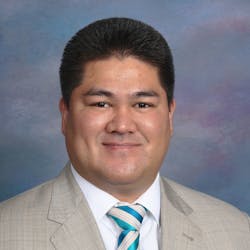One of the most interesting aspects of a political campaign is the act of asking influential people for endorsements. You are not only asking people to help promote your name or your cause, you are also asking them to lend you their credibility. You are asking them to leverage their good name, their history, their success, and likely their entire reputation to be an advocate for you. History has taught us that an endorsement by the right person is often all a candidate needs to secure victory, even in a highly contested political arena.
Remember the United States presidential election of 1800 where Thomas Jefferson and Aaron Burr, members of the Democratic-Republican party, ran against Federalists John Adams (the sitting president at the time) and Charles Pinckney? Jefferson and Burr each earned 73 electoral votes, while Adams earned 65 followed by Pinckney’s 64.1 Since the votes resulted in a tie between Jefferson and Burr, the terms of the Constitution necessitated a contingent election in the House of Representatives. Each state delegation was afforded 1 vote, and victory was awarded to the candidate with a majority of the state’s delegation. Neither candidate was able to win on the first 35 ballots. What put an end to this battle of the ballots was Alexander Hamilton’s personal endorsement of Jefferson.2
Hamilton successfully convinced several Federalists (the majority of whom were backing Burr) to switch their support to Jefferson. As history records, Jefferson was victorious on the 36th ballot, winning in a landslide. A single endorsement is what sealed Jefferson’s seat as the third president of the United States of America.3
The power of endorsement
We are all looking for someone to endorse us, aren’t we? How many times have you asked a patient to give a positive Google or Facebook review? How many dentists have hired social media experts or marketing agencies to help establish their brand? How many people have asked politicians, celebrities, or key business figures to write a letter of recommendation? We all know that brand association or personal worth can be greatly enhanced because of the people with whom we choose to associate, and more importantly, because of key endorsements we receive from well-recognized individuals or institutions.
If endorsements are so important, why are we not challenging dental insurance companies who claim that you, the dentists, have endorsed them and all that they offer? During a human resources meeting I had with my insurance agent, Chris Torres, I asked him to recommend a health and dental plan that would best suit our company’s needs. The quality of the participating providers was my only request of Chris when searching for our health coverage. He then presented two plans for my consideration: Select Health for medical insurance and Delta Dental for dental insurance. When I asked what influenced him to select these two plans, he responded, “These plans have the highest rate of endorsement among providers compared to other health and dental plans.”
If you are an in-network provider with any insurance company, your mere participation is likely being presented as a full endorsement.
The word “endorsement” was shocking, as I can count on one hand how many dentists I know who truly endorse any insurance plan. Such a statement by my insurance agent inspired me to further explore this foolish notion that dentists, in large numbers, would actually endorse a dental plan. I then interviewed John Smith, a reputable and well-recognized insurance broker out of Dallas, Texas. Smith works with 230 school districts in Texas, and most of the districts use Cigna or Delta Dental. The reason he promotes both insurance carriers is because in Texas, these plans also have a “strong endorsement among dentists and dental specialists” according to Smith. Shortly into this interview, it dawned on me that among insurance agents and brokers, the word “endorsement” is synonymous with “participation,” or “in-network,” even “credentialed,” among the dental community. In short, insurance agents view dentists’ participation with any insurance network as a full endorsement. As such, agents and brokers alike convey this perceived endorsement to employer groups when presenting a proposal to an employer to enroll with a certain dental plan.
Think about that for a second; to the general public, a participation agreement between a dentist and an insurance plan is an expression of the dentist’s trust, loyalty, honor, support, credibility, approval, or dare I say love toward that insurance plan.
According to Gallup, dentists are the fifth most trusted professionals of 2020.4 It’s no wonder that insurance carriers would teach insurance brokers and agents that dentists’ participation with them (insurance companies) should be considered a full endorsement. In the exact same poll, insurance industry professionals are not ranked. In fact, insurance salespeople (agents and brokers) land at spot 19, immediately followed by senators and members of Congress. This type of public perception strategy or branding strategy is both impressive and outrageous at the same time. It is disgusting and must be fixed.
Dentist participation drives insurance success
If you look at your own community, what you will find is that the most popular dental plans also have the largest endorsement of participating providers.5 Likewise, the smallest dental plans with the least market share usually have little to no participating providers. Why? Simply stated, the public trusts dentists and the numbers prove that employers and individuals alike tend to purchase the dental plan that is endorsed by the most local dentists.
According to Richard Stein, an insurance broker in San Antonio, Texas, who sells dental plans, “The top-ranking dental plan in the eyes of an employer is almost always determined by the number of participating dentists.” Richard reports that he has tried to sell dental plans that were less expensive with more benefits than the average plan, but employers would reject those plans due to the limited number of participating providers. In short, the success of any dental plan appears to be determined by you, the readers of this magazine. Without you, your participation, and your endorsement, sales of a particular insurance plan are close to impossible.
The solution
As simple as it may sound, revoking your endorsement is what is required to restore balance between dentists and insurance companies. It is a natural assumption that if you drop a dental plan you could run the risk of losing a significant amount, if not all, of the patients who are on that plan. However, if we are talking about PPO plans, the notion of losing all your patients is a myth I’d like to dispel. My experience indicates that most insured patients stay with their dentists because of the trust factor, not the money/insurance benefits factor. Feedback from the insurance broker/agent community indicates that most patients are loyal to their dentist regardless of their participation status with insurance. If you wish to test the out-of-network waters with insurance or otherwise revoke your endorsement of insurance, here are a couple of things to consider:
Assess your focus. Do patients come to you because you are in-network or because they trust your clinical expertise? Are dental benefits more important than the value of the treatment you present to your patients? If insurance is the leading factor behind your patients’ decision to accept or reject treatment, then I recommend training your team to think and talk differently and in a way that advocates quality care and not insurance benefits.
Find a mentor. There are thousands of dentists who have successfully dropped dental plans, and they are not hard to find. Many even write for this magazine and have freely shared their opinion on how to become fee-for-service. Find a path to insurance independence that works for you and commit to it.
Accept the reality that insurance is not on your side and has never earned your endorsement. Insurance companies are not your advocate! If you feel that they are on your side, then, by all means, keep your endorsement of them in place.
Recognize the realities of being out of network. For many dentists, ripping off the Band-Aid today may not be the wisest decision when it comes to dropping a dental plan. Instead, assess the situation carefully, plan meticulously, then execute with great zeal. Proceed in a way that will benefit your business but also set the record straight with insurance that you have never and will never endorse them.
There is a lot more to consider when revoking your endorsement, but it is my hope that the information shared in this article will invite you to assess your own situation, create a plan, and then take action. While this advice is intended for individual dentists, it is my hope that dentists nationwide find the means and the courage to come to a decision on their own to revoke their endorsement of specific dental plans. After all, evidence of a dental plan’s success is greatly dependent on whether your endorsement remains in place or is removed in protest. If such an act of protest leads you to become a fee-for-service dental office, let the truth be told that the fee-for-service model is alive and well in dentistry. It is my hope that no matter how you choose to proceed, the future of dentistry is absent the problems of dental insurance that we face today.
References
- 1800 United States presidential election. Wikipedia. https://en.wikipedia.org/wiki/1800_United_States_presidential_election#:~:text=Under%20the%20terms%20laid%20out,chose%20between%20Jefferson%20and%20Burr.&text=Hamilton%20personally%20favored%20Jefferson%20over,ballot%20of%20the%20contingent%20election
- Beard CA. Economic Origins of Jeffersonian Democracy. Macmillan Co.; 1915.
- Pasley JL, Robertson AW, Waldstreicher D, eds. Beyond the Founders: New Approaches to the Political History of the Early American Republic. University of North Carolina Press; 2004.
- Reinhart RJ. Nurses continue to rate highest in honesty, ethics. Gallup. January 6, 2020. https://news.gallup.com/poll/274673/nurses-continue-rate-highest-honesty-ethics.aspx
- MultiTrack dental benefits industry history. National Association of Dental Plans. https://www.nadp.org/resources/public/dentalhistory








